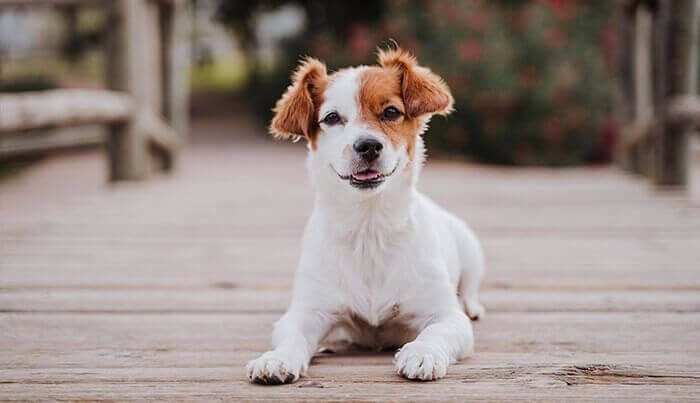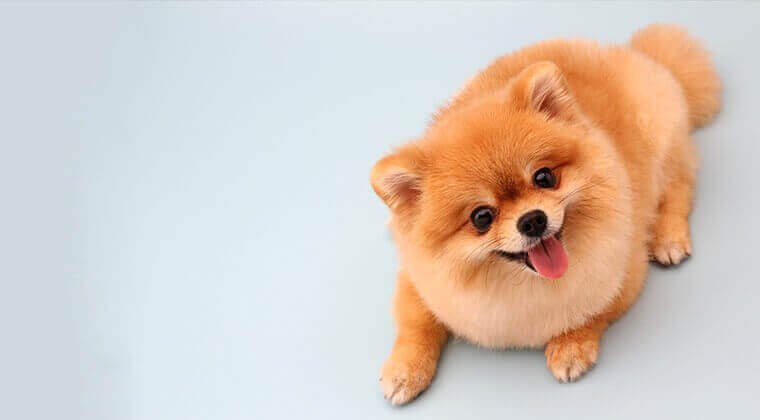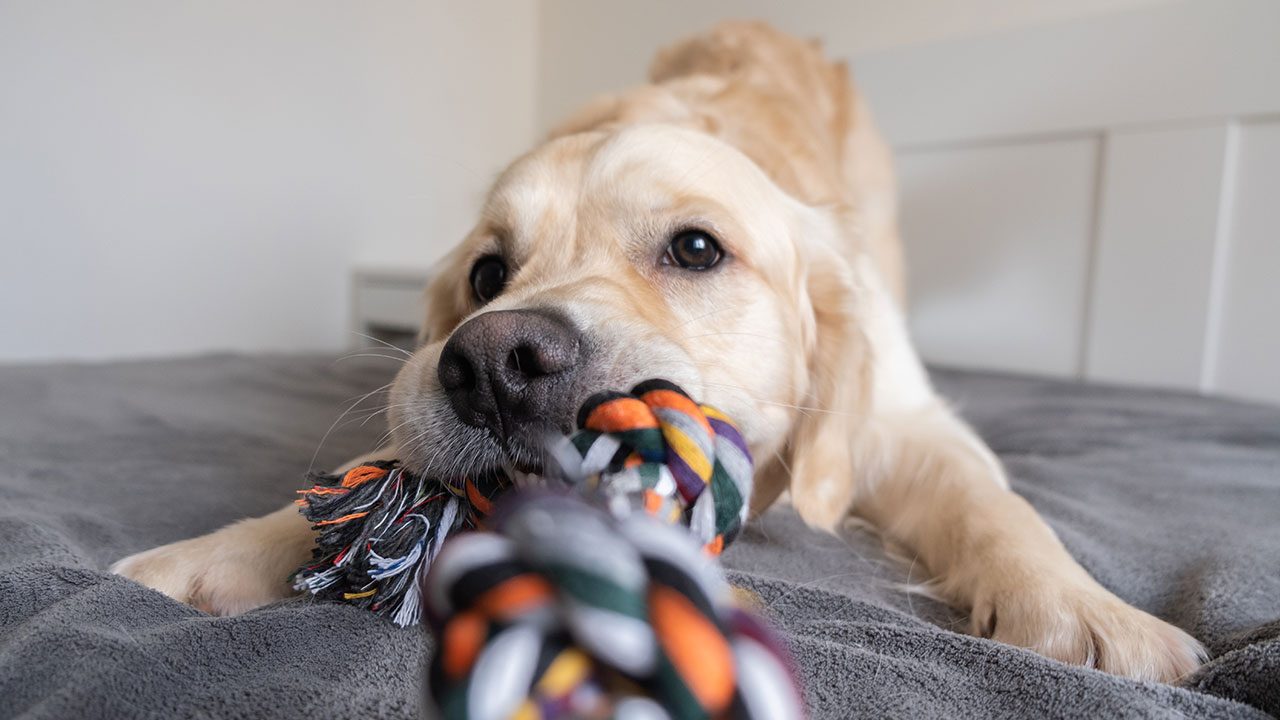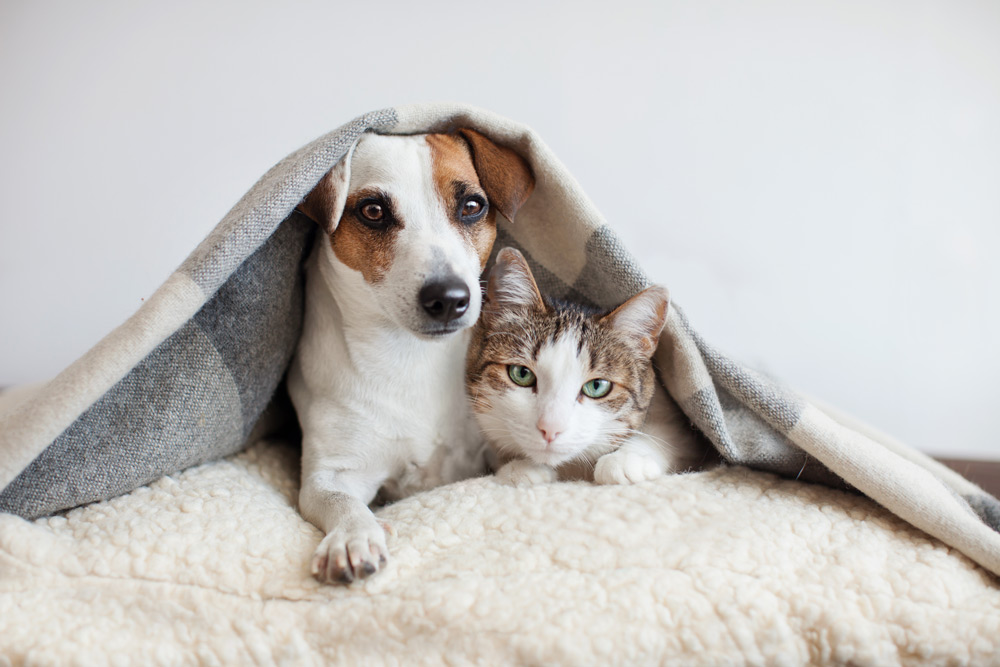When your precious puppy jumps excitedly to greet you or zooms around the room, rolls over on his or her back for a belly rub, or wags his or her tail eagerly, there’s little doubt that your dog is happy! These are obvious signs of a happy dog, and even though your dog cannot tell you how he or she feels with words, he or she shows you through behaviour, body language, and even through physical health.
Learning the signs of a happy dog – as well as the signs of an unhappy dog – is a great way to tell if your dog is happy.

BODY LANGUAGE OF A HAPPY DOG
Every dog is unique. They have different personalities and temperaments and even dogs of the same breed have different body types and shapes. Nonetheless, there are a range of common cues in your dog’s body language that will let you know if he or she is happy.
A happy dog will appear comfortable and at ease. His mouth will not be tight, but soft and perhaps partially open. His ears are relaxed, not pulled back or alert. And your happy dog’s overall posture will be relaxed, head raised, tail at-ease – or perhaps held high.
Your happy dog will wag her tail while keeping the rest of the body loose. If the tail wags and the body is stiff, your dog may be showing alertness or nervousness. You can also tell if your dog is happy if she rolls over to show you her belly, or if she invites you to play by “bowing” – lowering her chest to the ground and barking excitedly.
Your happy dog will also lean into you or your hand when you stroke him. If your dog seems relaxed with you and enjoys your attention, you can tell you have one content pup.

BEHAVIOURS OF A HAPPY DOG
There are several common behaviours of happy dogs. Of course, some factors like age, breed and health can impact how your dog exhibits specific behaviours. Happy dogs are generally not destructive and are content and relaxed in their space. Destructive behaviour can be a sign of stress or anxiety.
Your happy dog will have a healthy appetite, indicative of feeling physically well and emotionally content. Changes in appetite can be an early sign of potential illness or unhappiness.
Your happy dog is excited to play, take a walk or go for an outing. If your dog is not interested in these things, he or she may not be feeling well or may even be in pain.
Your happy dog is also excited to see you when you walk through the door.
HOW DO I KNOW IF MY DOG IS UNHAPPY?
Just as your dog’s behaviour and body language can tell you when he or she is happy, the same is true for if your pup is unhappy or unwell. The following are some of the signs of an unhappy dog:
- Low or tucked tail. If your dog’s tail is tucked between his legs, it may mean he or she is stressed or unhappy. Also, watch for the way your dog wags his tail. While wiggly, high tail wags definitely indicate happy feelings, a slow wag or a rigid body might mean your dog is afraid or insecure.
- Tense body. A worried dog will not appear relaxed. She might shrink away, hold her head low and avoid eye-contact. If your dog holds very still, it usually means she feels very uncomfortable.
- Ears are back. If your dog is stressed or anxious, his ears may look as though they are pinned back and flat against the head.
- Appeasement behaviour. If your dog rolls over onto his back, but doesn’t seem relaxed in doing so, but rather, is stiff and still, he may actually be feeling worried. This is your pup’s way of telling you that he does not want to upset you. Licking his lips repeatedly and yawning are also signs that he feels uncomfortable with a situation.
- Hiding or walking away. If your dog tries to hide behind you or another object, something is clearly making her stressed or afraid. In this case, it’s best to let your dog hide or walk away; your pup is letting you know she needs a time out.
- Hair on the back of the neck raised. This physical indicator means that your dog is feeling fear, anger or aggression.

HOW CAN I MAKE SURE MY DOG STAYS HAPPY?
It is important to remember that a healthy dog is a happy dog and that in order to keep our furry friends happy, we want to meet their needs, both physically and emotionally.
Keeping up visits to the veterinarian for regular exams and vaccinations is one way to maintain your pup’s physical health, as well as being consistent with a year-round flea and tick protection protocol. Also, you will want to maintain a healthy, protein-based diet for your dog and stick to a regular feeding schedule.
You will want to provide an appropriate amount of exercise for your dog, mental stimulation through games, and plenty of love and affection.
Looking for a Vet?
Your veterinarian plays a big role in your pet’s health. Input your location information and get a list of veterinarians near you.
Find A Vet Near MeAnother way to ensure your dog’s happiness is to look after your own health and happiness! In addition to experiencing their own emotions, your dog reacts to your moods, so the healthier and more content you are, the more comfortable and content your dog will be too.
If you do become concerned that your dog is not happy for any reason, consult your veterinarian. He or she will be able to evaluate your four-legged friend for any illness or health issues and can best guide you and your pooch back on the road to happiness.






 Go To United States
Go To United States Austria
Austria Belgium
Belgium Czech Republic
Czech Republic Denmark
Denmark Europe
Europe Finland
Finland France
France Germany
Germany Greece
Greece Hungary
Hungary Ireland
Ireland Israel
Israel Italy
Italy Netherlands
Netherlands Norway
Norway Philippines
Philippines Poland
Poland Portugal
Portugal Romania
Romania Saudi Arabia
Saudi Arabia Slovakia
Slovakia South Africa
South Africa Spain
Spain Sweden
Sweden Switzerland
Switzerland Turkey
Turkey United Kingdom
United Kingdom